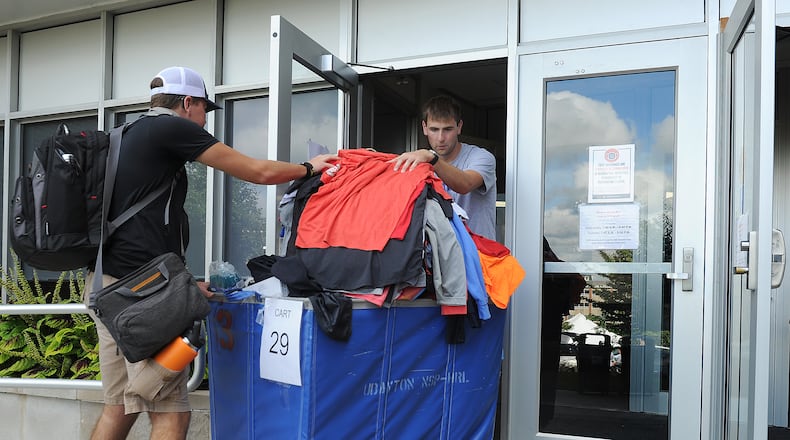“You think about what has happened in industry, in employment, you know, people have moved in the middle of this thing,” Shock said. “They have quit their jobs, they have started businesses, they have lost their jobs.”
The loan payment pause went into effect in March 2020 with the implementation of the CARES Act, a law meant to relieve economic stress from individuals impacted by the pandemic. The most recent expiration date (Jan. 31), has now been extended to May 1, 2022, according to the U.S. Department of Education.
During the break, qualified borrowers are not required to make payments, and interest rates are set at 0% on existing loans. Automatic payment settings are also turned off, among other initiatives. When May 1 rolls around, regular payments will be required again.
When the grace period was scheduled to end on Jan. 31, a survey from data research company SAVI found that nearly 90% of participants did not feel prepared to start making regular loan payments again due to changes in budget priorities and other financial obligations.
For Beavercreek resident and University of Notre Dame graduate Kristen Wehner, the most recent extension was a relief, as it’s given her more time to get her finances in order before payments start up again. Even so, the process of paying off student loans in general remains a burden for her.
“If definitely stresses me out,” Wehner said. “I have to take money out of other areas of my life. And I would really rather be comfortable than doing that.”
There’s a years-long debate over federal student loan debt policy, against a backdrop of rapidly rising college costs. Some analysts say debt forgiveness would do wonders for the economy, while others say students signed a contract and should be held to their commitment.
Ohio borrowers will not be immune to the payment restart. The University of Dayton, for example, reported that on average, graduates who took out student loans owe an average of $20,117 per person, with a loan default rate of 1.4%.
The university also reported employment rates of over 90% for recent graduating classes and noted that there are free job search services and free student loan counseling services available for graduates.
“Our graduates have a remarkable track record of success — and during the pandemic, that has held true,” said Jason Eckert, UD’s career services executive director. “This sets them up for success as repayment restarts on federal student loans.”
Though UD graduate borrowers have plenty of resources available to them, the situation may not be the same for debtors everywhere. For example, Wehner has had limited contact with her loan servicer ahead of the payment restart and questions about loan repayment still linger. For young adults who elect to take out student loans, the complexity of the situation may not be readily apparent, Wehner said.
“When students sign on to the student loan program, they’re only 18, and they’re not really qualified to make (that) decision,” Wehner said. “They don’t really know what they’re getting into. And then having tons of loans just out of college, it’s very stressful, because there aren’t a lot of good jobs that students can take right out of college that will pay them enough to be able to pay the loans back and also live.”
While the additional time is beneficial for student loan debtors, there are still plenty of steps to be taken before payments resume in May.
Michele Streeter, associate director of policy & advocacy at the Institute for College Access & Success, recommended that debtors identify and check in with their loan servicer to find out if their existing payment plans are still viable and make a change if necessary.
It’s also important that debtors manually restart their automatic payment plans and log onto their payment account to ensure that all information is updated so that messages involving payments can be communicated properly. Finally, borrowers should re-certify their income if there’s been a recent significant change, as this can impact individuals who are repaying their loans on an income-based plan.
Neglecting to take appropriate precautions prior to the payment restart could result in some individuals defaulting on their loans. Defaulting can open doors to a host of new consequences, including wage garnishment and decreased credit scores, according to Shock.
Since the pause in payments is unprecedented, the restart brings up a lot of potential issues, Streeter said.
“I think we’re really concerned for the situation that students are facing in terms of their financial situation,” she said. “This has never been done before. And so, all signs point to, there will probably be some things that go wrong and there’s probably a lot of folks who will struggle to get back into repayment.”
About the Author
